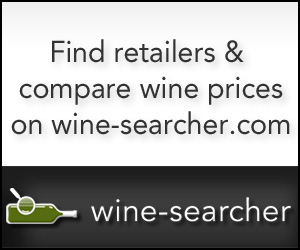What's Up With Organic Wine?
© by Richard Fadeley
 Everywhere we go we are confronted with "organic this" and "organic that", how about "organic wine"? Legitimate question, so I set out to get to the bottom of just what organic wine offers, and whether it is worth the extra cost, if there is one.
Everywhere we go we are confronted with "organic this" and "organic that", how about "organic wine"? Legitimate question, so I set out to get to the bottom of just what organic wine offers, and whether it is worth the extra cost, if there is one.
We started by gathering a sampling of "sustainable", organic, and biodynamic wines and it turns out that a lot of these producers don't go out of their way to indicate that their wines are anything out of the ordinary. Many organic producers choose to "fly under the radar" and label their wines the way they always have while others will proudly announce their "organic" status.
Another confusing issue is the use of sulfites. They are a natural byproduct of the wine making process, but are often used as a preservative in making wine. Only a small segment (less than 2%) of people are allergic to sulfites. Try some dried fruit to find out if you are allergic, they contain more sulfites than wine. While white wines have more sulfites than red, they are certainly not the cause of you "red wine headache".
But let's start with defining the various levels that the winemakers can subscribe to. Sustainable Wine: Indicates that the winemaker is observing reasonable viticultural practices that will maintain or improve the soil conditions without overuse of chemicals as well as water management and vine growth. While not as rigid as organic wine, it does indicate a sincere commitment to practical improvement and maintenance of the vineyards. With several official certifications, "sustainable wine" has yet to be clearly defined. Clearly the most impressive movement in this direction is spearheaded by the California winegrowers with the formation of their California Certified Sustainable Winegrowing (CCSW) and to date they have better than a 65% participation rate. They insist on a gradual improvement within their 180+ different winegrowing parameters, most importantly pesticide and herbicide use and water management. Hopefully this movement will expand and become the standard that will define any responsible winery.
I spoke with Dr. Judy Luchinger, an accredited auditor for CCSW in Lake County, CA about their program and she agreed that it is a giant step forward, requiring annual improvement in vineyard management towards sustainability. Certification is the only way these movements can have useful meaning. Right now California is the only state offering this certification, but hopefully this will expand and be offered in most, if not all, states in the US.
Made with Organically Grown Grapes: These grapes must be grown without the use of chemicals, pesticides or fertilizers. Sulfites may be added in the wine making process. This certification is granted by authorities in each country (the USDA in the US).
Organic Wine: Must be made from organic grapes with no added sulfites. You will often see "no detectable sulfites" on the label, though a small amount of sulfites will naturally occur. Again, this certification will be controlled by authorities within each country, such as the USDA here.
Biodynamic: By far the most exotic and extreme measures stem from the practice of "biodynamic viticulture" whereby the practitioner engages in an almost "sorcerer style" of preparations and rituals that somehow are supposed to affect the outcome in the vineyard and-- for some strange reason--it seems to positively improve the wines. Begun in 1924 by the Austrian philosopher Rudolph Steiner, biodynamics is a holistic approach to agriculture and has been adopted by more than 450 vineyards worldwide. Certification is only granted by a branch of Demeter, a German cooperative. Some of the requirements may vary by countries, but the general intent is the same, to insure chemical free grapes and wine.
The good news is that there is not much, if any, premium for buying and enjoying these wines. I personally think that the "sustainable wine" is an important designation and California should be commended for leading the way. This means you are not exposed to an overuse of unnecessary pesticides, and used only when absolutely necessary. The use of sulfites is important in winemaking and should not automatically be a disqualifier. Let's allow the winemakers choose the best methods for their wines and sort out the semantics, continuing to make top-notch wines, the best way they see fit – which seems to be gravitating towards "sustainable" – in an effort to make the finest wines that they can.
So don't "get your drawers in a knot" over organic wine, you will be tying one hand behind your back if you choose to. Pay as much attention to alcohol percentage (ABV), which can impact wines more than sulfites.
We have picked out a few of our favorites among these sustainable and organic wines for your enjoyment. If you are compelled to seek out only organically grown grapes or organic wine there are serviceable wines that will conform to your specifications. We welcome your questions and comments. Enjoy!
�Organic and Sustainable Wine Review�
| Sparkling and White Wines: | ||||
| Domaine Carneros '10 Brut | **** | Organic Vineyards Shine! | California | $ 24 |
| Champagne Mailly NV Brut | **** | Sustainable Bubbles!! | France | $ 40 |
| Pacific Rim '12 Dry Riesling | **** | Biodynamic! | Washington | $ 13 |
| Charles & Charles '13 Rosé | **** | Sustainable Rosé! | Washington | $ 12 |
| Quivera '12 Sauvignon Blanc | **** | Crisp & Biodynamic! | California | $ 14 |
| Anakena '13 Chardonnay, Central Valley | ***1/2 | Sustainable Best Buy! | Chile | $ 9 |
| Red Wines: | ||||
| King Estates '11 Pinot Noir | **** | Delicious Organic Wine! | Oregon | $ 22 |
| Cht. La Croix Taillefer '10 Pomerol | **** | Exquisite Merlot Blend! | France | $ 35 |
| Gordon Brothers '11 Merlot | **** | Sustainable Merlot! | Washington | $ 27 |
| Pilastri '10 Rosso Piceno "Piediprato" | **** | Sangiovese Blend! | Italy | $ 14 |
| Benziger '11 Cabernet Sauvignon | ***1/2 | Biodynamic Cab! | California | $ 15 |
| Broc Cellars '12 Vine Star Zinfandel | ***1/2 | Low Alcohol Zin! | California | $ 26 |
| Lucinda & Millie '12 Cabernet | ***1/2 | Good Value Here! | California | $ 12 |
| Mother's Choice '12 California | *** | Nice Easy Wine! Best Buy! | California | $ 10 |
Our four-star rating system and how it might compare to the WS 100-point scale:
* Decent (80-83)
** Good (86-87)
*** Very Good (87-89)
**** Excellent (90+)
All ratings are only the opinions of our tasters and not meant to offend your personal favorites.
November, 2014
To contact Richard Fadeley, write him at webwineman@hotmail.com




